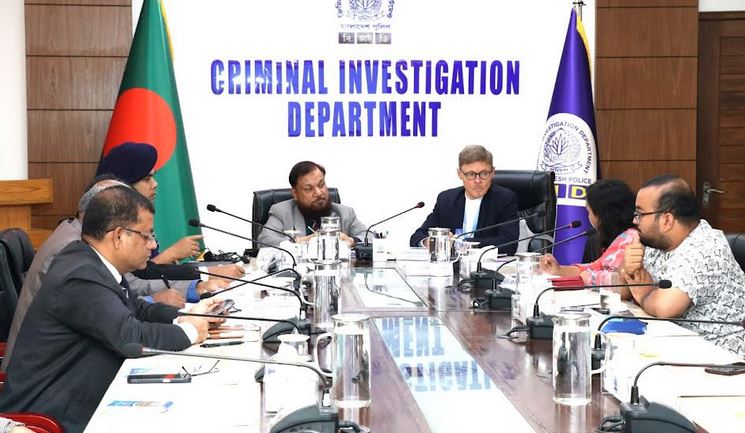News Flash

DHAKA, July 31, 2025 (BSS) - A two-day international workshop on “Minnesota Protocol on the" Investigation of Potentially Unlawful Deaths” was concluded today at the Criminal Investigation Department (CID) Headquarters in the capital’s Malibagh area.
The Office of the United Nations Resident Coordinator (UNRC) and the CID of Bangladesh Police jointly organised the workshop with Additional Inspector General of Police (IGP) and the CID Chief Md. Sibgat Ullah in the chair.
In his speech, the CID Chief said, “CID is now developing itself as a modern, technology-and information-based investigative agency. It is our commitment to ensure transparent and impartial investigations by maintaining international standards.”
He further said, “The application of sound, scientific and evidence-based investigative methods is essential to protect human rights and ensure justice, and such workshops advance that effort.”
Morris Tidball-Binz, the UN Special Rapporteur on Extrajudicial, Summary or Arbitrary Executions, presented the keynote speech at the workshop.
He said, “The Minnesota Protocol is an internationally recognized principle that helps ensure impartial investigations into extrajudicial deaths and plays an important role in building trust in the justice system.”
In his presentation, he highlighted the inherent significance of the Minnesota Protocol with great importance citing examples of investigations into extrajudicial killings in Libya and the Falkland Islands.
Before his speech, Shampa Yasmin, Special Superintendent of Police (Forensic), CID shed light on DNA and other forensic facilities.
The two-day international workshop was attended by senior officials from various units of the Bangladesh Police, members of the judiciary, medical and forensic experts, representatives of human rights organizations, relevant professionals in the technology and investigation sectors, and important stakeholders at the policy-making level.
Coming from diverse backgrounds, these participants shared their experiences, opinions, and real-world challenges in the workshop, which made the discussions more lively and fruitful.
The main topics discussed in the workshop included: Disaster Victim Identification according to internationally recognized principles, the process of preparing science-based and impartial forensic reports, ethical and professional guidelines for police investigations in the protection of human rights, and the presentation of case studies discussed in the light of practical experience.
In addition, Dr. Momtaz Ara, Assistant Professor, Forensic Medicine, Dhaka Medical College, Additional DIG Jannatul Hasan (Police Headquarters, Dhaka) and Mr. Ahmed Ferdous, Deputy Chief DNA Analyst, CID gave some examples on the practice of DNA forensics in Bangladesh.
Their discussion also highlighted the progress, limitations and challenges of the investigation activities of the crimes committed during the July Movement.
On the concluding day, the speakers emphasized on making the country's investigation system more effective, humane and transparent by combining technology, training and international experience.
Everyone expressed the hope that the valuable opinions and experiences of the participants would be helpful in enhancing the professional excellence of the CID.
At the end of the meeting, the CID Chief emphasized on further expanding the forensic capabilities of the CID in the future.
He expected the cooperation of the relevant international organizations, especially in the field of infrastructural development and modern training.
The keynote speaker of the event, Morris Tidball-Binz, in his closing remarks, said that technical support is very important in the investigation of extrajudicial deaths.
He assured necessary support from international partners including the United Nations in setting up mobile DNA labs, on-site body identification systems and other technology-based initiatives.